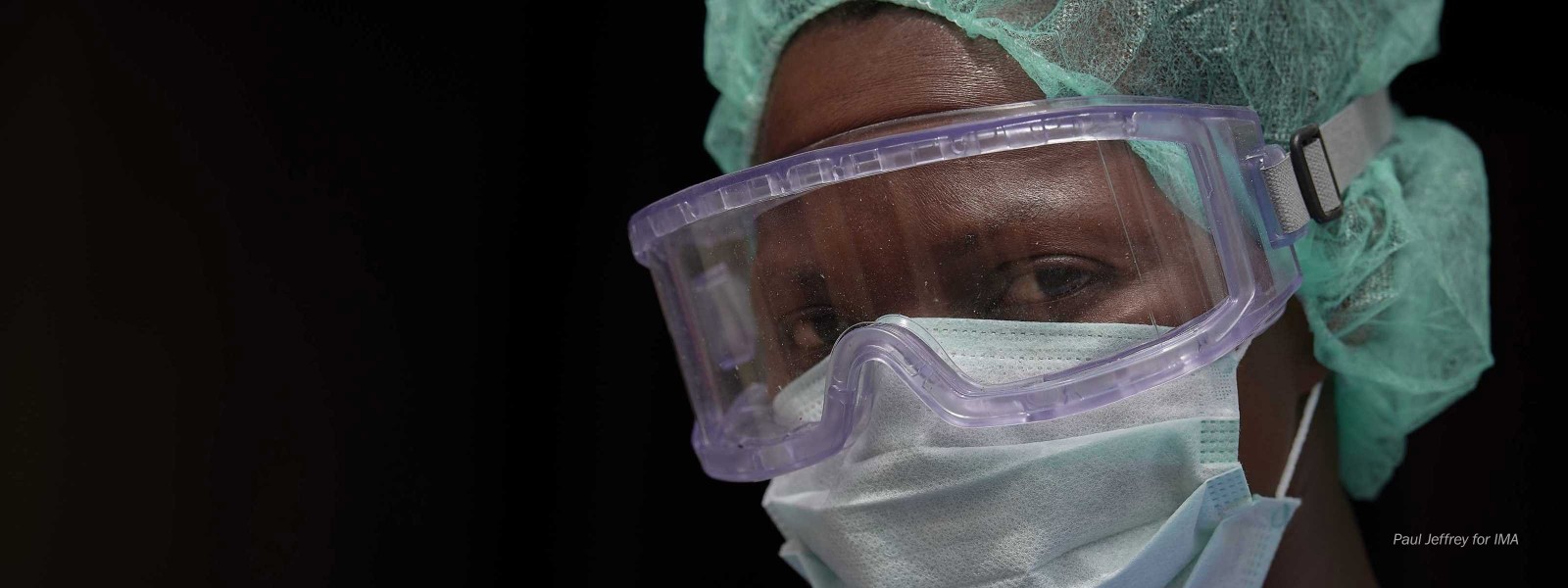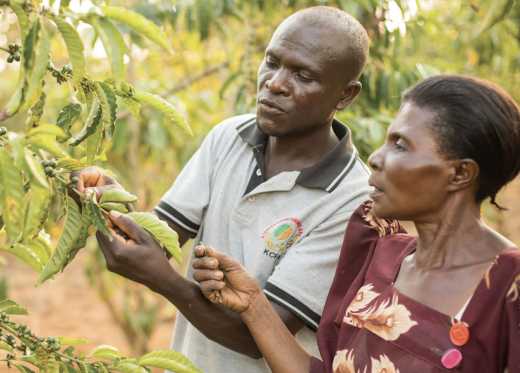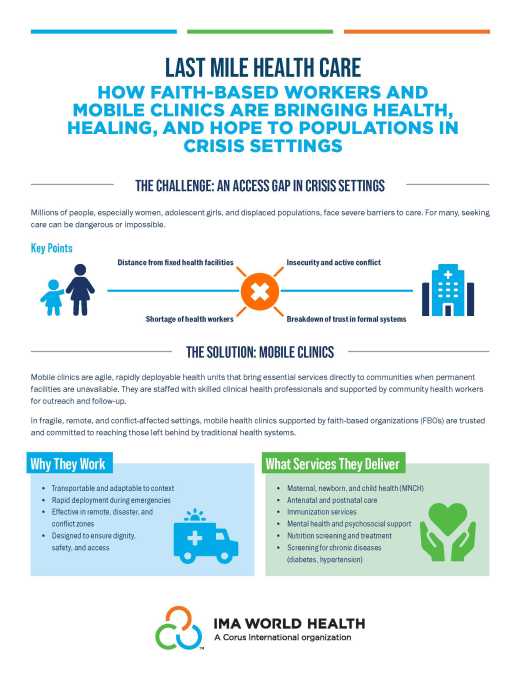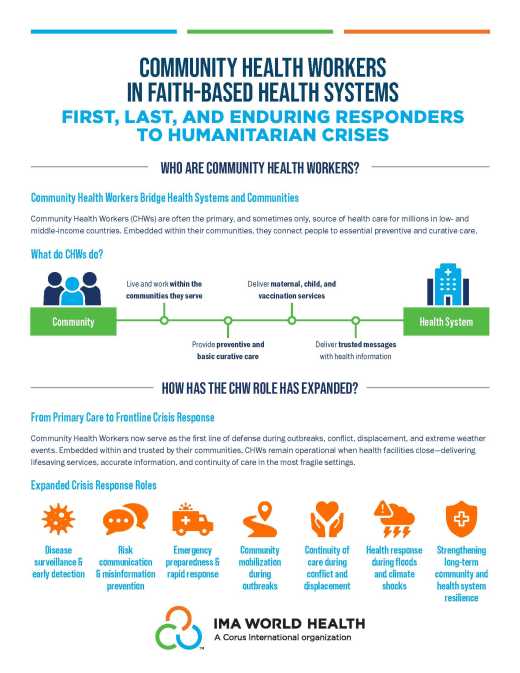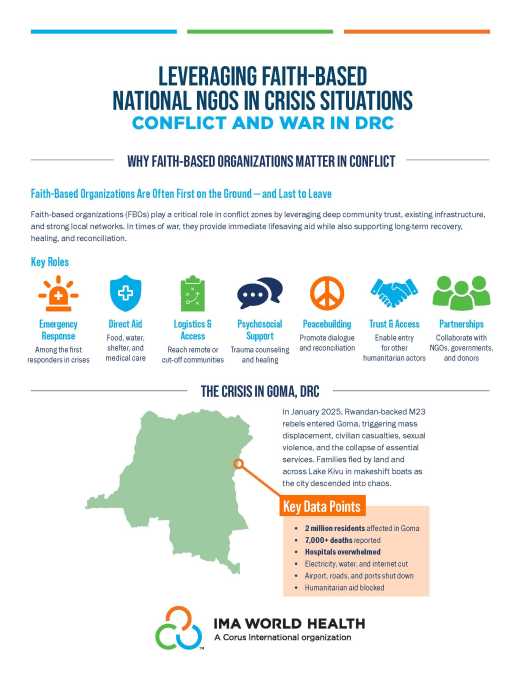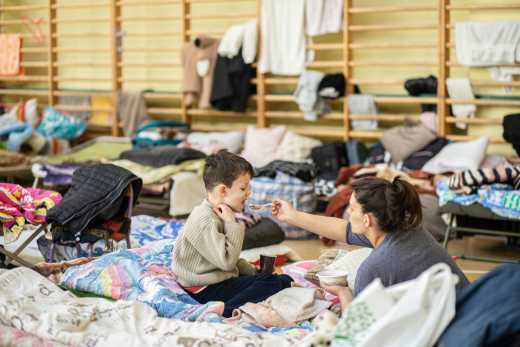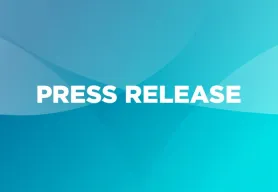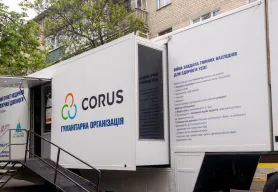IMA World Health (IMA) supports countries and communities in preventing, preparing for, detecting and responding to outbreaks or pandemics in accordance with the Global Health Security Agenda. IMA collaborates with governments, regional networks, national partners, and the private sector to mitigate threats and strengthen global health security by ensuring integrated, quality health care services for last-mile communities and people living in fragile settings. IMA works with state and community actors to support preparedness and health resilience activities, systems strengthening for rapid outbreak and case detection, and emergency management activities for immediate response.
Prevent and Prepare
Health Systems Strengthening: IMA works with local actors to assess and address gaps within the six building blocks of health systems strengthening: health service delivery, health workforce, health information systems, access to essential medicines, health systems financing, and governance. In so doing, IMA strengthens both short- and long-term capacity to establish and strengthen resilient health systems and reduce chronic vulnerabilities by addressing risks and responses to shocks and stresses. Globally, IMA leads the US government-funded Momentum Integrated Health Resilience ($200 M | 2020-2026) activity to accelerate reductions in maternal and child mortality, including strengthening the capacity of local organizations and governments to respond to public health challenges, now and in the future.
Community Engagement: Early and effective community engagement is key to preparing for pandemics or other public health emergencies. IMA works in communities to promote social cohesion and positive behavioral changes as critical elements in prevention and preparedness efforts.
Vaccination: IMA addresses the human, financial, social and physical capital needs of a health system to improve its vaccine service delivery and universal access at scale by strengthening the capacities of a country’s health workforce to safely procure, manage and deliver vaccines through training, mentoring, and the provision of equipment and other resources, including for the cold chain. IMA collaborates with ministries of health, health care workers, local leaders and partners to conduct social listening, promote education, dispel misinformation, uplift trusted local vaccine champions to support advocacy and fuel demand, and develop and execute on risk communication and community engagement (RCCE) plans.
Infection Prevention and Control: IMA focuses on infection prevention and control (IPC) by implementing specialized disease control projects tailored to the needs of underserved communities. By strengthening health systems and enhancing service delivery, IMA ensures that effective IPC measures are integrated into health care practices, ultimately reducing the burden of diseases among at-risk populations.
One Health: IMA recognizes the interconnectedness of human, animal, and environmental health through a One Health approach. IMA addresses critical issues such as antimicrobial resistance, zoonotic and vector-borne diseases, food safety, and environmental impacts that threaten health and well-being. Through efforts to enhance livelihoods, address animal health, and promote safe agriculture in collaboration with fellow Corus organization Lutheran World Relief, community-led total sanitation (CLTS) initiatives and the training of volunteer animal health agents have fostered social and behavior change regarding household WASH practices and animal health and waste management. These strategies reduce the incidence of illness and environmental contamination, helping to mitigate potential public health crises.
Detect
Data Collection and Reporting: IMA works with governments at all levels to collect, analyze, and apply data for planning and program improvement. IMA has been instrumental in scaling up District Health Information Software 2 (DHIS2), an open-source health data management system to collect data on national public health statistics, and other facility-level data collection in challenging contexts such as the Democratic Republic of Congo, South Sudan, and Kenya.
Community-based Surveillance: IMA helps train, equip, and mobilize health workers in community-based surveillance, including house-to-house visits. IMA also supports the identification and reporting of potential health risks or unusual events in real time through mobile systems or other methods of communications. If a government response becomes overwhelmed, IMA supports or supplements ministry of health responses to fill gaps in specific health areas and ensure underserved communities are reached.
Contact Tracing: In response to COVID-19 or Ebola, IMA collaborates with contact tracing teams to conduct daily surveillance and case monitoring.
Respond
Supply Chain Management: IMA has deep experience preserving and mobilizing emergency supply chains, having done this successfully in difficult settings such as South Sudan during and after the conflict of 2013, in eastern DRC, and during the COVID-19 pandemic.
Health Worker Training: Alongside local actors, IMA leverages in-house and external expertise to train staff (train the trainers) and to ensure subsequent training for health workers at the community and facility levels. IMA employs an innovative, hybrid learning model for health care workers in low-resource and conflict settings that combines key elements of traditional classroom with adaptations from virtual learning to address the challenges of building health worker capacity in settings that include a limited workforce, unreliable internet access, and logistical and travel-related constraints.
Enhanced Facility Response: IMA helps health facilities strengthen their capacity to curtail transmission and safeguard staff and patients through a deeper understanding of relevant protocols and supply chains, appropriate personal protective equipment (PPE) use, and improvements in waste management, potable water supplies, solid waste management and containment systems for suspected patients.
Health Emergency Response: IMA swiftly addresses health emergencies by deploying medical resources and collaborating with local actors to mitigate the impact of crises such as floods, earthquakes, and disease outbreaks. By developing and maintaining operational readiness, IMA engages in effective responses to public health disasters like cholera in Haiti or Ebola in the DRC with essential measures such as material resources, WASH interventions, and infection prevention and control. IMA's longstanding partnerships with local networks, like the Africa Christian Health Associations Platform (ACHAP), enhance the ability to sustain essential health services during emergencies. By incorporating disaster risk reduction into emergency response work, IMA aims to not only respond to immediate needs but also promote long-term sustainability and preparedness.
PROJECT HIGHLIGHTS
IMA recognizes early warning systems (EWS) are vital components of disaster risk management and the resilience of health systems, providing local stakeholders—governments, service providers, and communities—with the necessary information and time to prepare for and respond quickly to disasters and other hazardous events. Through the US government-funded Momentum Integrated Health Resilience, led by IMA, EWS enables health workers and facilities to minimize disruptions to service delivery and continue to reach at-risk populations with essential health care and support in times of crisis. IMA employs a model based on disaster risk knowledge; detection, observations, monitoring, analysis, and forecasting of hazards; warning dissemination and communication; and preparedness and response capabilities. The model adopts an integrated, people-centered approach to protect affected populations, incorporating effective governance and institutional arrangements, and community involvement to protect vulnerable populations.
Through the five-year, US government-funded Afya Jijini project, IMA World Health led a consortium of local partners that successfully strengthened Nairobi City County’s institutional and management capacity to deliver and improve access to and uptake of quality health care services in HIV; tuberculosis (TB); maternal and newborn child health (MNCH); water, sanitation and hygiene (WASH); and nutrition services, including for key populations (KPs). IMA strengthened institutional capacity by working closely with the Nairobi City County Health Management Teams (CHMT) and Sub-county Health Management Teams (SCHMTs) to support 247 health facilities across 10 sub-counties. Key interventions included annual work planning and budget development; health facility leadership capacity development; health products and technology oversight and facility-focused quality improvement initiatives. The project also worked with highly-engaged community-level organizations to reach KPs that are vulnerable to HIV infection. These community groups educate and engage a wide range of community members to reduce stigma, promote safety and prevent mother-to-child transmission.
Beginning in April 2022, IMA and its longstanding partner the Africa Christian Health Associations Platform (ACHAP) launched the Promotion of COVID-19 Vaccine campaign through Faith-Based Networks in Africa (CoV-FaB) project with the support of the Osprey Foundation and the Evangelical Lutheran Church in America (ELCA). The project responded to the significant lag in vaccination rates within East, West, Central, and Southern African countries and supported 860,422 COVID-19 vaccine doses in Sierra Leone and Zimbabwe alone (August 2022-March 2023). In Sierra Leone, these efforts contributed to a national increase in the fully vaccinated rate to 71.2% of the 12+ years population as of December 2022. IMA and ACHAP are continuing engagement to strengthen health emergency preparedness through the Ecumenical Pharmaceutical Network (EPN), a Christian non-profit comprising 136 faith-based organizations whose pharmacists, health care providers, and supply chain professionals provide care to over 300 million people.
Consistent across our programming, IMA’s COVID-19 response has been context-driven and locally led. Understanding that time is precious in the face of a crisis, IMA acted quickly to ensure health workers had the PPE, equipment, and resources necessary to reach at-risk communities and, later, mobilized rapidly to support faith-based health care networks across Africa to promote COVID-19 vaccine awareness and support vaccine delivery. Through our local partnerships, IMA has:
- Provided information, technical assistance, equipment, and supplies to implement infection prevention and control in health facilities, communities, and project sites;
- Supported community surveillance and contact tracing efforts;
- Developed and disseminated evidence-based messaging on the virus and safety measures;
- Strengthened the health system and community capacity and resilience.
During eight years of implementation, ASSP and its follow-on project ASSR improved the health of women, adolescents and children through support for disease prevention, delivery of health care and health systems strengthening in the DRC. With funding from the UK’s Foreign, Commonwealth & Development Office (FCDO), the projects supported an estimated 9.7 million people across 52 health zones in five provinces, strengthening the health system by focusing on priority interventions such as the treatment of malaria, pneumonia and diarrhea; nutrition; obstetric and neonatal care; immunization; and water, sanitation and hygiene (WASH). The projects collaborated with the Ministry of Health (MOH) at all levels of service delivery, including the national and provincial levels and with focused support to health zones, health facilities and communities. The projects allowed for 2.23 million births to be attended by skilled health personnel at health facilities. More than 13 million mosquito nets were hung through bed net campaigns. 286 health centers were built, including 109 newly constructed health centers during ASSP. 4.78 million children were screened for malnutrition and over 1.35 million pregnant women and children under five received direct and intensive nutrition interventions. Additionally, the projects promoted and strengthened the open-source health data management system DHIS2 to improve data dissemination and to improve decision-making for health service delivery.
IMA and our partners in the Democratic Republic of Congo have facilitated community-based Ebola prevention, preparedness, and response and supported health service continuity since the 2018-2020 outbreak. IMA supported the delivery of nearly $1 million in PPE to frontline healthcare workers, the establishment of 78 Ebola triage and isolation units, the installation of water supply and hygiene systems at 164 health clinics, and training on community-based surveillance and Ebola messaging for more than 1,000 religious and community leaders.
IMA is also able to tap into the multisector programming of Corus International and strengthen existing groups and networks in response to disease outbreaks. For example, Corus mobilized farmer groups, digital outreach platforms, and community leaders across sectors to disseminate COVID-19 information in coordination with national ministries of health beginning in the early months of the pandemic. In Mali, IMA’s Osprey Foundation-supported Animal Inclusive - Community Led Total Sanitation (A-CLTS) project piloted an innovative WASH model that integrates strategies to reduce animal-human disease transmission and manage animal waste, tailored to the realities of rural households. IMA partnered with the Union of Livestock Breeder Cooperatives (USCET), the International Livestock Research Institute’s (ILRI) One Health Center, and academic research partners.
IMA World Health served as the lead agent for the primary health care activities the World Bank funded in South Sudan pre and post-independence. IMA worked closely with UNICEF and the Ministry of Health to identify recipient PHCCs and train health care personnel in EPI related activities. IMA and project partners co-funded both routine and outreach EPI activities, including the establishment and funding of annual ‘dry season campaigns’ in difficult to reach counties and payams in Jonglei and Upper Nile States. This included mapping cattle camps and bringing mobile teams by vehicle or boat for catch-up vaccination of children. IMA ensured that malaria diagnostics and treatment reached some of the most rural health facilities in this 24 County primary health care improvement project. By using innovative performance-based contracting, IMA incentivized the government to ensure RDTs and ACTs reached target health facilities and were used appropriately to diagnose and treat malaria.
Under the Global Fund’s new financing model, and in partnership with SANRU, IMA World Health implemented malaria interventions in 35 health zones in North and South Kivu, DRC from 2015–2018. More than 1 million long-lasting insecticide-treated nets were distributed to pregnant women and children under one, alongside prenatal consultations and preschool medical screenings. Of the 5.66 million suspected malaria cases, 97 percent were tested using rapid diagnostic tests or stained blood films.
In 2018, the Global Fund expanded IMA’s role to include routine distribution of tuberculosis and HIV/AIDS treatment and prevention supplies, extending geographic coverage to North Ubangi. IMA teams rapidly scaled up distribution for all three diseases.
Beyond routine distribution, IMA manages Global Fund–supported mass LLIN campaigns. In 2019, as a sub-recipient to SANRU, IMA will oversee mass distributions in five provinces. Since 2015, IMA has used smartphones and open-source software for electronic data collection, improving efficiency and data quality compared to paper-based methods.


